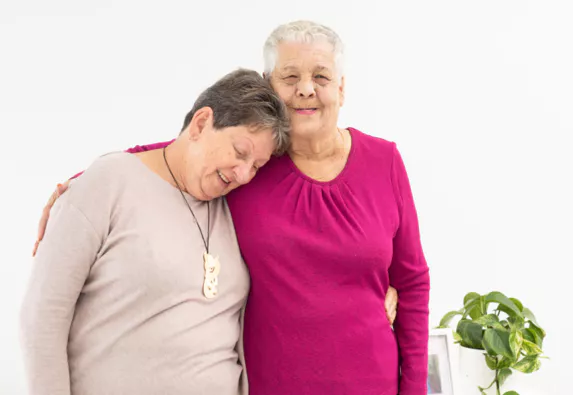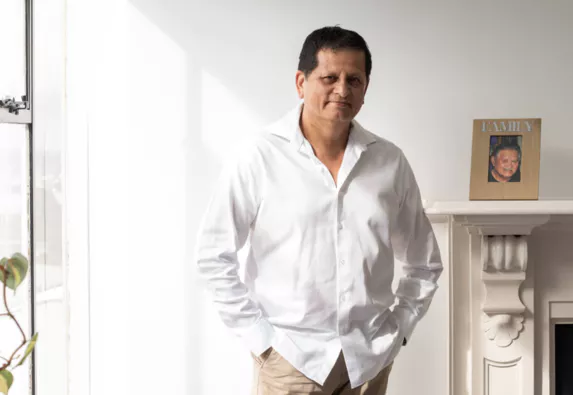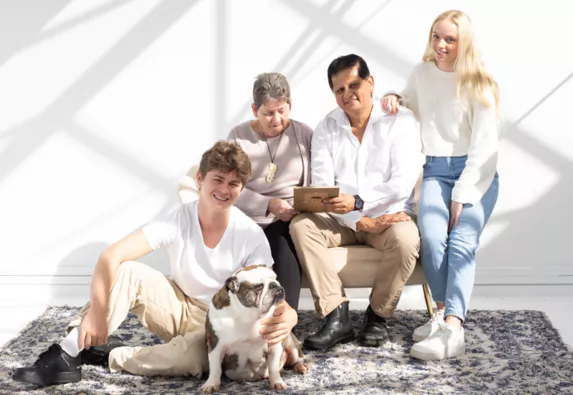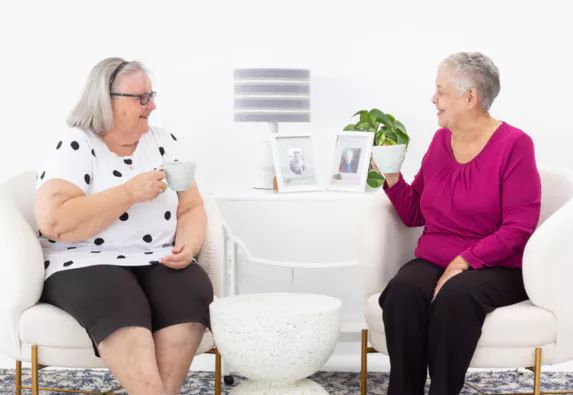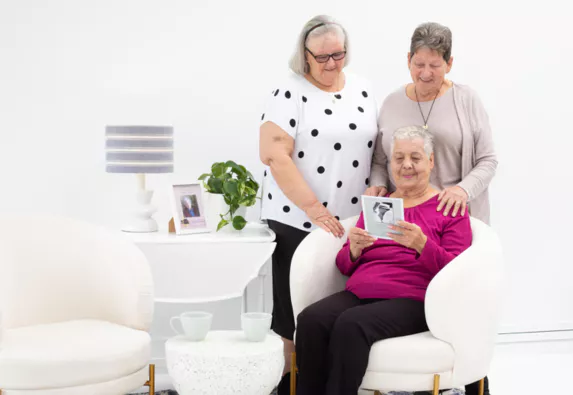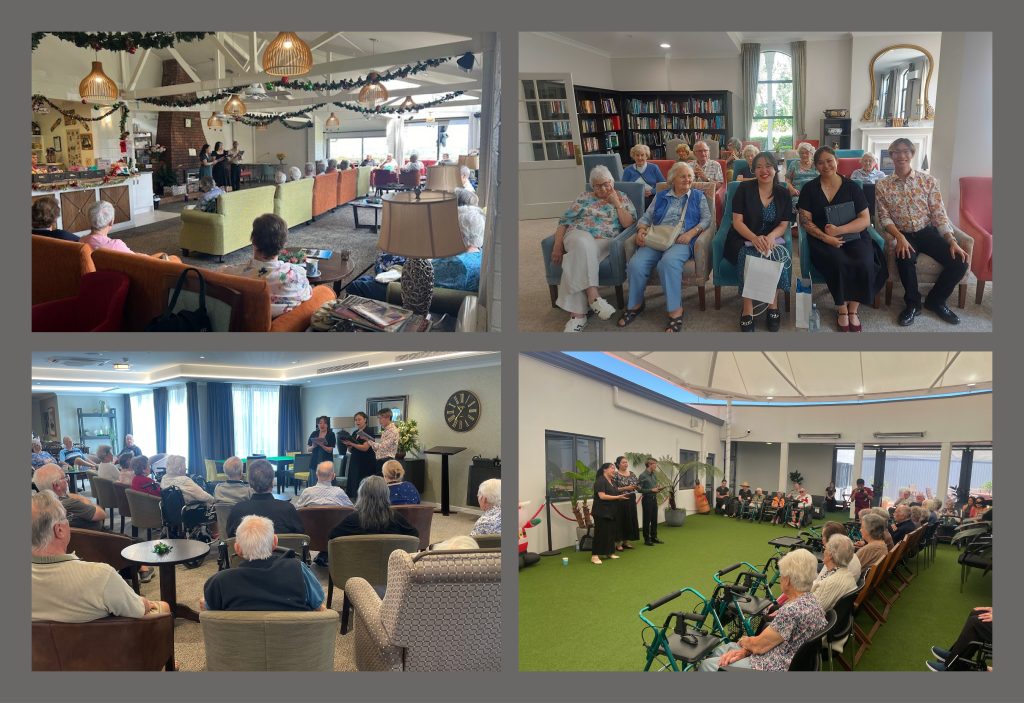
The Return of the Travelling Carollers
From
For the 5th year running, we’re keeping the holiday spirit alive with our Travelling Carollers, spreading festive cheer at retirement villages across Auckland! We’re thrilled to offer 20 performances that bring joy to both residents and staff. Each session blends traditional and contemporary carols, so everyone gets to hear their favourites. This year, we even welcomed 2 original carollers from our 2019 group! It’s such a special tradition, and we’re proud to give back to our local communities during this joyful season.

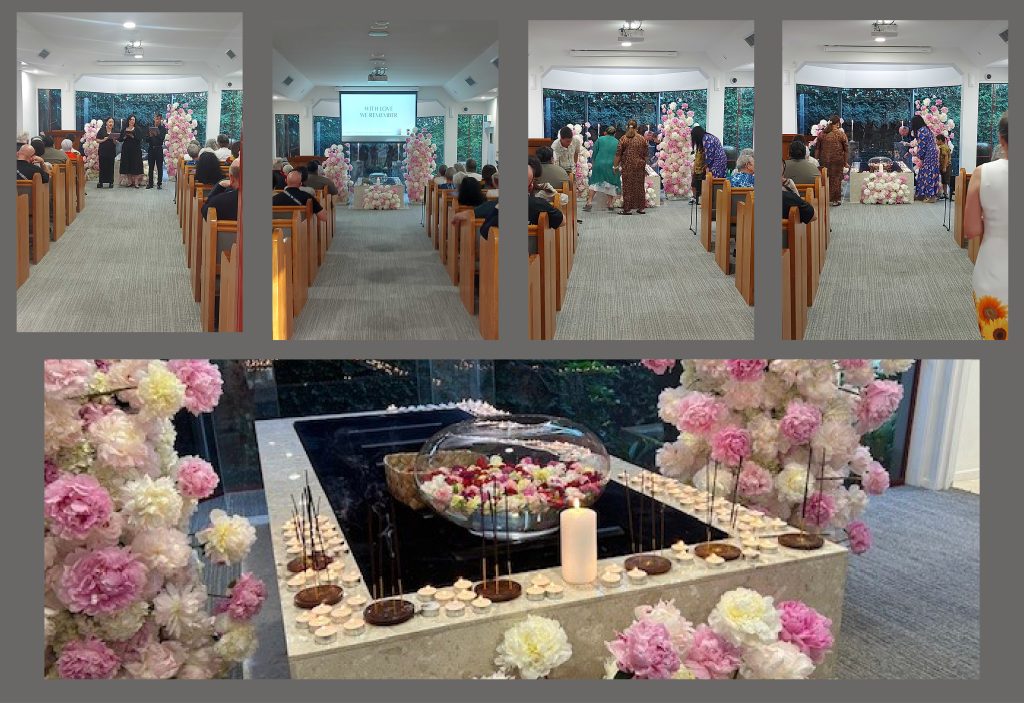
2024 Christmas Remembrance Service
From

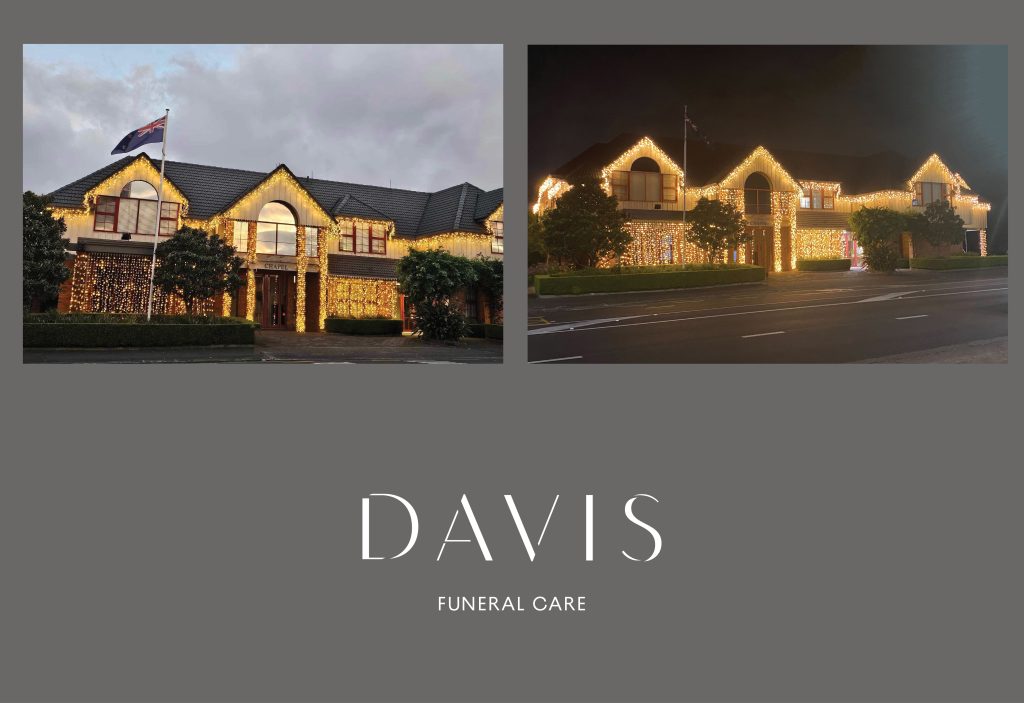
Lighting Up Grange Manor Once Again
From

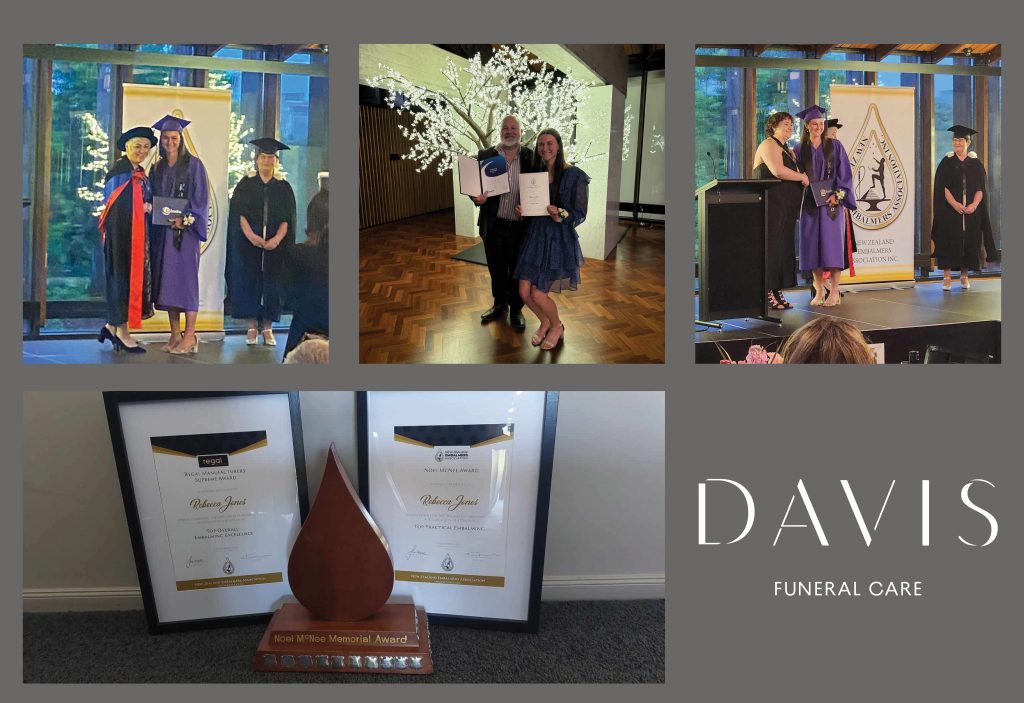
Our Newest Graduate Embalmer Receives Top Accolades
From

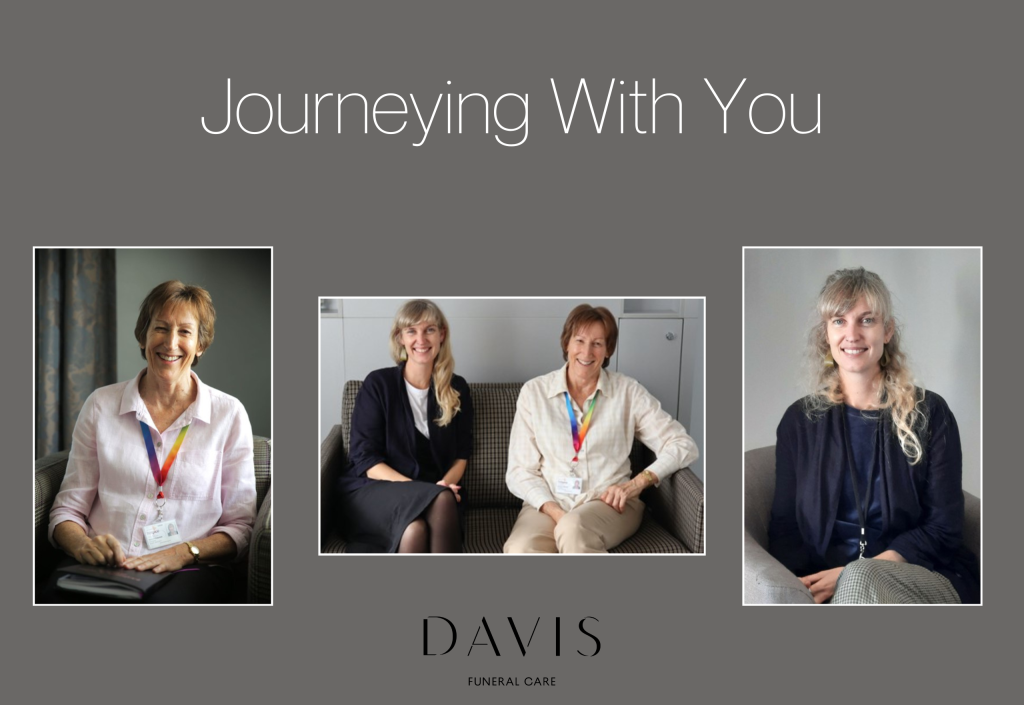
Journeying With You
From
As Palliative Care Counsellors at Hospice West Auckland, Maxine and Amy walk alongside
patients on their end-of-life journey. Sessions can be individual, and/or with couples and
family units. They also work with whānau to help navigate the grief and bereavement
process following the loss of a loved one.
Palliative care counselling is a special role that begins with understanding the unique needs
of each person and what brings them to counselling. “With a patient, we are journeying with
them into the unknown – we go where they go. Sometimes that’s into some really deep,
unknown places that only get revealed when they start having a dedicated space to connect
with what is going on for them,” says Maxine. “Quite often they will have a goal, something
they want to get out of counselling. It’s always patient-led. We are both relational
counsellors, so the person is always at the centre of the counselling.”
Amy explains that although it may seem obvious what brings a Hospice patient to
counselling, it’s important to see what ‘sits on top’ for people: “A person may want to talk
about loss of identity, the frustration they are experiencing, a relationship, or the fear of being
a burden to others,” she explains. “And of course that can change over time, and we’re
alongside adjusting to the change,” adds Maxine. “What might have been a focus at one
point could be something completely different the next time you meet, because life has
changed. It really is going with what is presented each time you come together.”
Maxine was always interested in specialising in grief counselling, inspired by her own
experiences with grief. “Through my training I’ve done other forms of counselling, but I
always wanted to work in hospice – that was my focus,” she says. Amy was also drawn to
working in grief counselling, and did a placement at Hospice West Auckland during her
studies. “I knew then that I wanted to work at Hospice,” she explains. “When working with
people facing end of life, there’s a lot of ‘meaning making’ – the legacy you’re leaving behind
and how you want to be remembered, relationships you have with others, values you’ve
instilled in your children, for example. I think for me it’s always been about being with people
to make sense of their lives, their stories, their experiences.”
At Hospice West Auckland, Maxine and Amy form part of the Social Care team. This
experienced group of individuals provide a wide range of services to Hospice patients and
their whānau, including massage and lymphoedema therapy, music and arts therapy, social
work assistance, spiritual care and acupuncture. “It’s a great team and there is so much
support,” says Amy. “We’re really there for one another – and we have fun too.” The team
work collaboratively with Hospice’s doctors and nurses to identify which patients and families
may benefit from the different social care services. Maxine and Amy also reach out following
a bereavement to see if there is a need for counselling. “We make sure that every patient
who comes into Hospice care is contacted by one of us in the Social Care team to offer that
holistic care,” says Maxine. “We know that our emotional self is just as important as our
physical self, as our spiritual self… we can provide that wrap-around care. And we keep the
relationship open to offer support at any stage of their journey.”
Maxine and Amy run the Bereavement Support Group, a six-week programme for people
who have lost a loved one in Hospice care. The Counsellors gently facilitate each session,
working within the group dynamic and holding a safe space to explore the experiences and
feelings being shared. Each participant is invited to introduce to the group the person they
have lost, which may be a photo, keepsake or any object that represents who they were in
life. It’s a special opportunity to bring their loved ones into the room and talk about who they
were in life, rather than their illness. It is a powerful way to acknowledge that a relationship
doesn’t end when someone passes – they continue with you as part of your life story.
“Groups are really powerful as a way to normalise people’s experiences, and to help them to
feel not so alone. It provides a sense of community and belonging, allowing the opportunity
to connect with others who have had similar experiences,” explains Amy. “Grief can also be
very isolating,” adds Maxine, “and sometimes people need to rebuild their lives after a loss
so it’s really valuable for them to make these connections with others who may be feeling the
same way.” At the conclusion of each six-week programme, the participants have always
continued to meet under their own initiative, maintaining that valuable connection.
The Kowhai Social Group is another weekly programme Amy runs at Hospice House.
Designed as social sessions for patients, they offer fun, optional activities such as arts and
crafts while connecting with others going through similar experiences. “The attendees can
unburden and talk in a safe space,” says Amy. “It’s less about the activities and more about
opening up and gaining a sense of normalisation and validation. We oscillate between lots of
tears and lots of laughter.”
Outside of Hospice, it’s not uncommon for people to wonder about the emotional weight of
being a palliative care counsellor, and the resilience it must require. However, Maxine and
Amy agree that their careers are hugely fulfilling. “It’s so rewarding because we are
connecting with people at such a real, potent time in their lives,” says Maxine. “It’s such a
privilege. It’s an honour to be alongside and involved in people’s journey in that way,” adds
Amy. The pair agree that it is incredibly gratifying when they see a tangible difference in a
person as a counselling session progresses: they may feel calmer and more settled or have
a sense of relief or release.
Part of training to be a counsellor involves practicing professionalism and self-care. “Training
in relational counselling is all about the relationship – you’ve got to have the relationship
before anything else can happen. But we also learn to not ‘fall into’ the relationship – that’s
the professionalism, and that’s how you can do the work and not carry that out of the room,”
explains Maxine. “You learn how to hold a space that is about the person you are with,
without being triggered personally.”

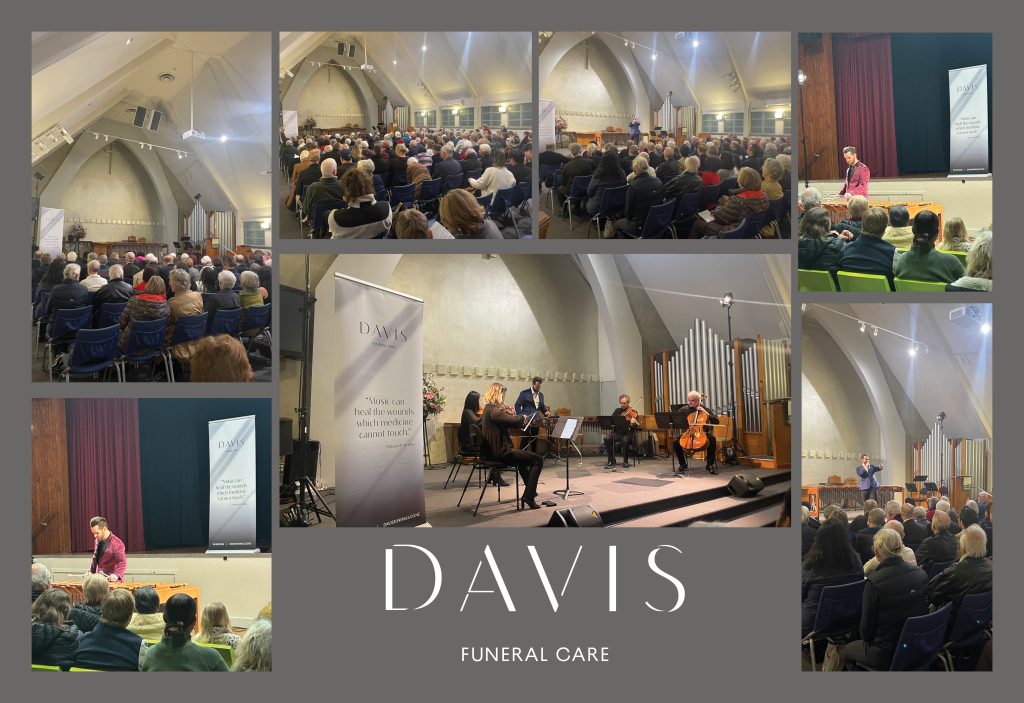
Davis Funeral Care: Continuing In Your Neighbourhood Concerts
From

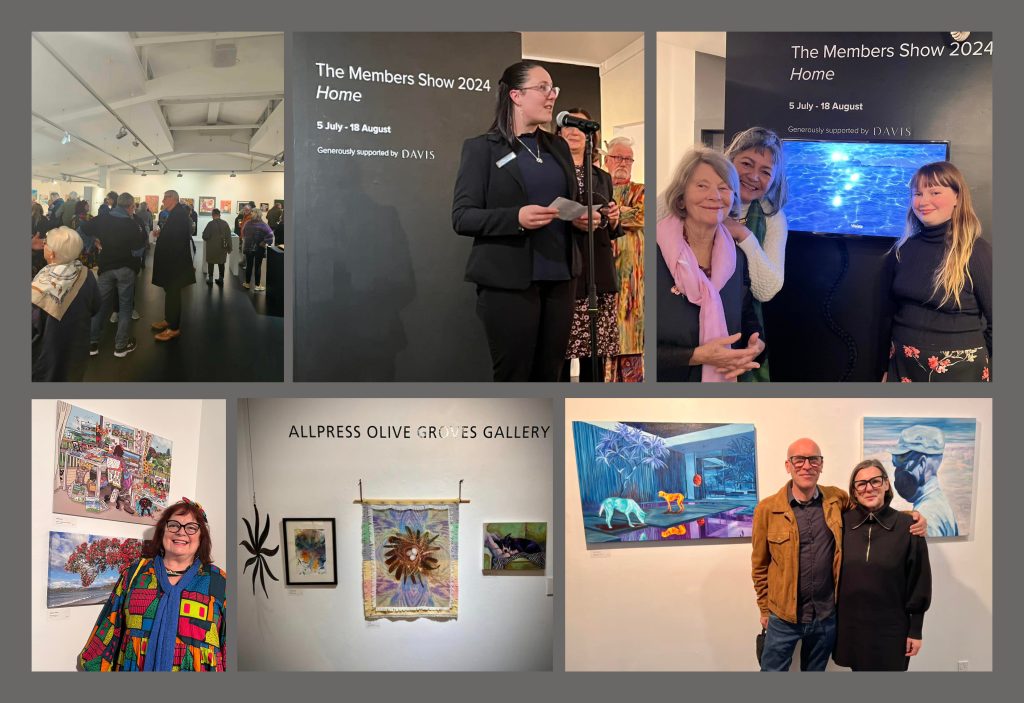
Davis Funeral Care renews sponsorship of the Waiheke Community Art Gallery
From
With a long association, assisting the community and families in Waiheke at their times of need, Davis Funerals were delighted to renew and reinvigorate our support and sponsorship of the Waiheke Community Art Gallery, and the Members Show which opened on Friday night. This year’s theme was “Home” and showcased a stunning, beautiful exhibition of colour, a variety of mediums, with some pieces thought provoking, some humorous and much more! We were excited to attend the opening event and mingle with the talented artists who had work on display.

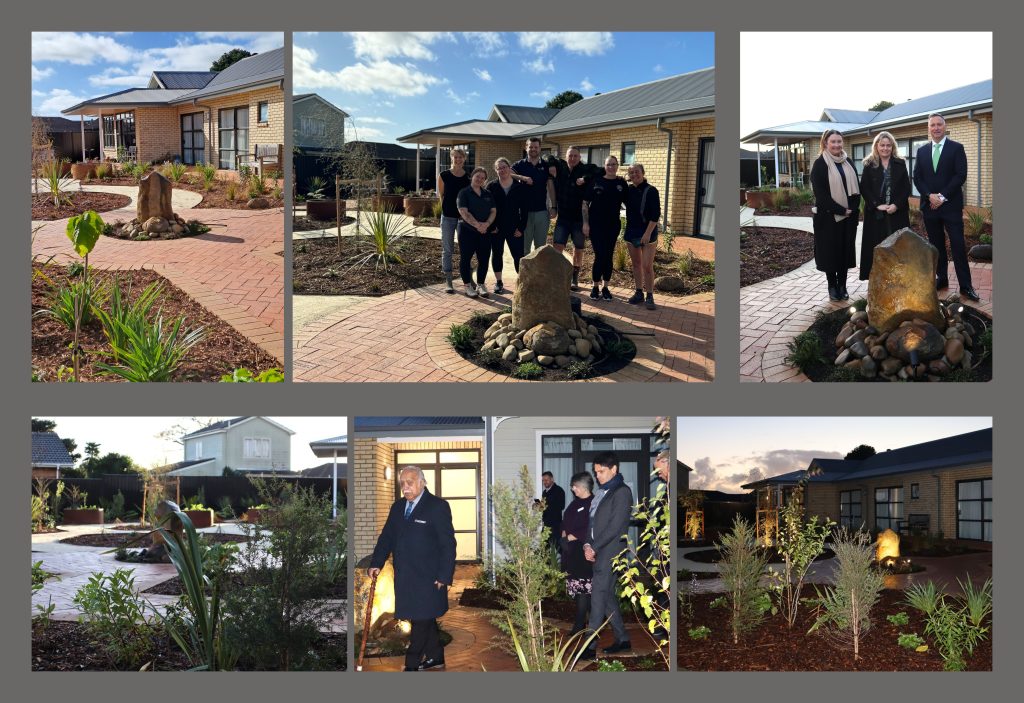
Supporting Hospice West Auckland’s Rongoā Garden
From


When someone you know becomes someone you knew – Understanding your grief
From
“What is grief”?
Grief is the normal human process that happens after any kind of difficult change or loss. It’s the way we gradually adjust our life to the reality of what’s happened and become able to move forward again. Grief involves the mix of thoughts, feelings and reactions we experience. It affects us more than we often realise. Grief reactions can be emotional, mental, physical, social or spiritual.
“What’s trauma then”?
Grief and trauma are often experienced at the same time – a double impact. Any experiences in which you felt your safety, or that of others, was threatened, or that leaves you feeling emotionally overwhelmed or highly anxious is considered traumatic. Grief centres on sadness and loss, but Trauma centres on fear and is felt as a threat to safety. It also takes time for the impact of trauma to ease.
“OK so I’m grieving, what can I do”?
The following 10 factors help to build your resilience, so we can cope as well as possible in times of adversity.
- Look after yourself
- Use your support circle
- Use your sense of humour
- Keep flexible and adaptable
- Use the life skills you’ve learned
- Believe in yourself
- Know what you’re good at and use those things
- Think creatively, see things differently, try new things
- Keep a positive outlook and attitude – be hopeful
- Persevere – keep trying!
“How can I support other people who are grieving?
A person’s grief is as unique as their fingerprint, we all grieve differently. Sometimes people don’t even know they’re grieving. There are no rules or timetable, it’s not a competition and there is no pass or fail. It takes time and it’s totally normal. Some things to keep in mind when supporting someone who is grieving are:
- Really listen
- Shared silence is OK sometimes
- Don’t judge them – accept them
- Give them time
- Don’t assume you know exactly how they feel
- Encourage and include them
- Be there in an ongoing way – offer support but then also follow through
- Help them find information and extra help if needed.
“Grief is not a state but a process like a walk in a winding valley with a new prospect at every bend” – C.S Lewis



